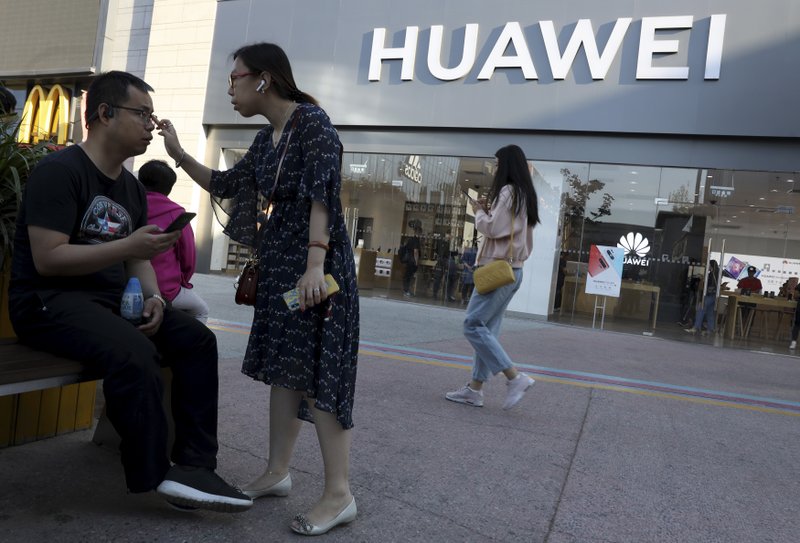BEIJING -- A report Monday on Chinese manufacturing suggested that Beijing's trade war with the Trump administration is causing domestic economic damage.
U.S. manufacturing activity slowed in May, to the lowest level since October 2016, in a sign that the trade war is also weighing on the U.S. economy.
Surveys of manufacturers across Asia for May showed that business confidence has been shaken by the conflict over President Donald Trump's demands that China change its industrial planning strategy and find other ways to redress its perennially huge trade surpluses.
A private survey, the Caixin manufacturing purchasing managers' index, or PMI, for China held steady at 50.2 in May, just above the 50 level that distinguishes between expansion and contraction. But business confidence slipped to its lowest level since the series began in April 2012. The government's official manufacturing PMI, issued Friday, sank to one of the lowest levels in three years.
U.S. manufacturers grew at a slower pace in May, as production levels fell slightly.
The Institute for Supply Management's purchasing managers index declined to 52.1 from 52.8, missing the median forecast of 53 in a Bloomberg survey but holding above the 50 mark that indicates expansion. Three of five components declined, including production, inventories and supplier deliveries, according to a report Monday. Eleven of 18 manufacturing industries reported growth.
Timothy Fiore, chairman of the ISM manufacturing survey committee, said the May index reflects a "slowing expansion" in the United States.
China showed no signs of budging over Trump administration demands. It issued a report over the weekend saying it would not back down on "major issues of principle." It said Beijing had kept its word through 11 rounds of trade negotiations and accused Washington of backtracking by introducing new tariffs and other conditions beyond what had been agreed to.
Most of Trump's ire over trade has been directed at China, given its lion-sized importance to global manufacturing and its growing technological prowess.
But last week the president heaped more uncertainty on global financial markets and investors by saying he would impose 5% tariffs on Mexican imports starting June 10 if the Mexicans don't stop the surge of Central American migrants across the southern U.S. border.
That would be a blow to some manufacturers that use Mexico as production bases, such as automakers.
The PMI reports follow signs from other major economies that trade tensions weighed on global manufacturing last month. U.K. manufacturing shrank for the first time in almost three years while gauges for China and South Korea both fell below the key 50 level. A separate report Monday showed the JPMorgan Global Manufacturing PMI fell to 49.8 in May, the weakest reading in data since mid-2016.
The ISM index's lowest reading of Trump's presidency -- down from a 14-year high in August -- comes after a slew of other U.S. economic data that suggest the sector was on shakier ground even before the latest escalation of tariffs between the U.S. and China began to pinch margins. A separate factory PMI released Monday by IHS Markit also fell, dropping to the weakest level since 2009.
Producers, who already faced head winds from slowing global growth and inflated inventories, may face additional fallout after Trump's threat last week to impose tariffs on all imports from Mexico.
ISM's production gauge dropped to 51.3 in May, the lowest level since August 2016, even as the gauge of backlogs declined to a two-year low. At the same time, the measure for new orders increased, as did the employment gauge, a sign of possible stronger hiring in manufacturing ahead of the May employment report.
The measure of exports increased, rising back above 50, while the imports gauge decreased for a third month to a two-year low of 49.4.
Fiore told reporters on a call that demand is "clearly slowing," citing the weaker readings for new orders, putting manufacturing on weaker footing amid growing trade war headwinds. "The China issue is not going to go away in the short term," he said.
An index of prices paid rebounded to 53.2, a sign that inflation could be beginning to pick up.
A gauge of supplier deliveries dropped to 52. Readings below 50 indicate faster deliveries, while those above 50 signal slowing. The customer inventories index increased.
The main ISM manufacturing gauge has held above the 50 line that divides expansion and contraction since August 2016.
Information for this article was contributed by Yanan Wang, Elaine Kurtenbach and Frank Bajak of The Associated Press, Reade Pickert and Chris Middleton of Bloomberg News and Josh Boak of The Associated Press.
A Section on 06/04/2019
